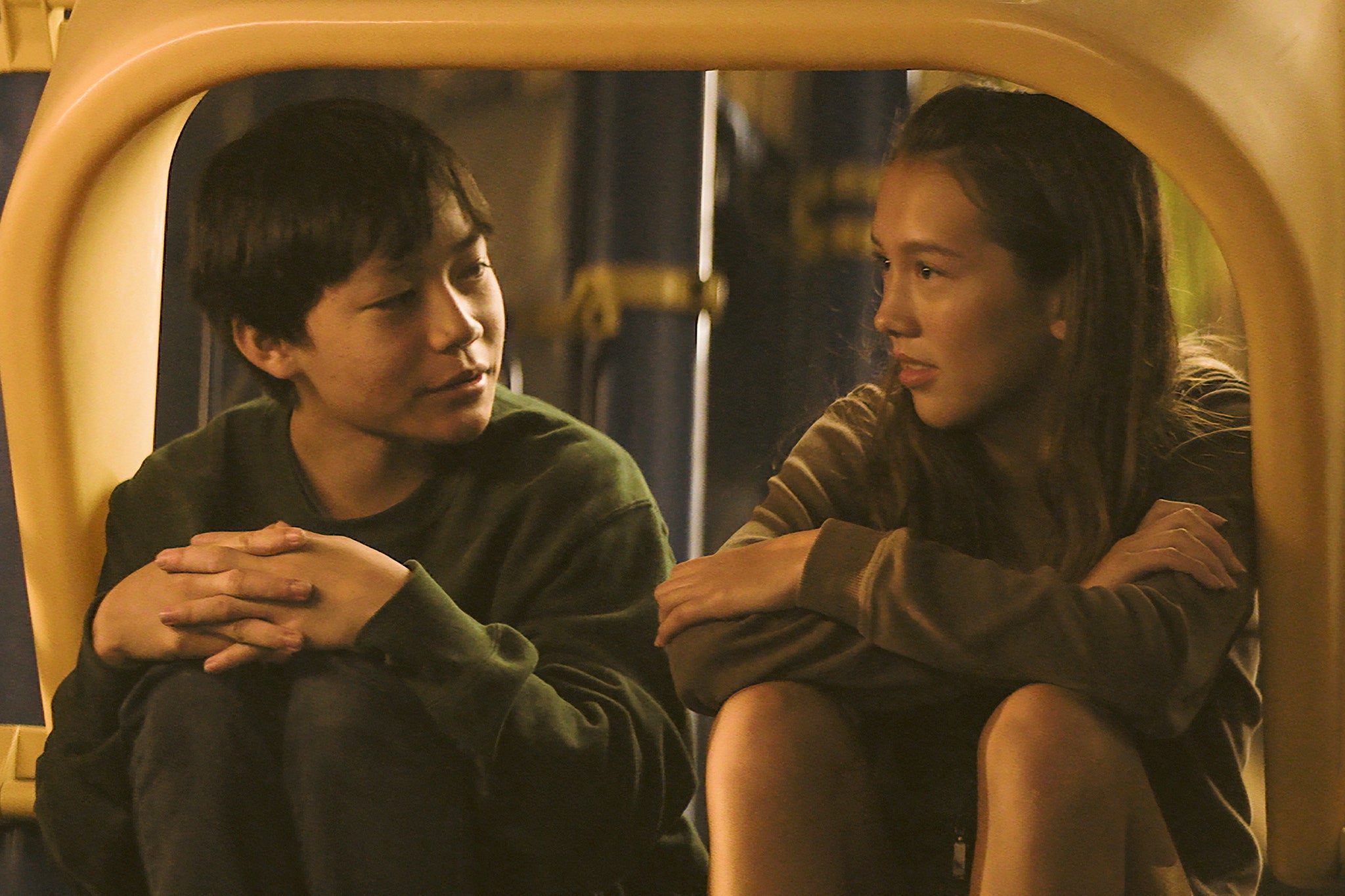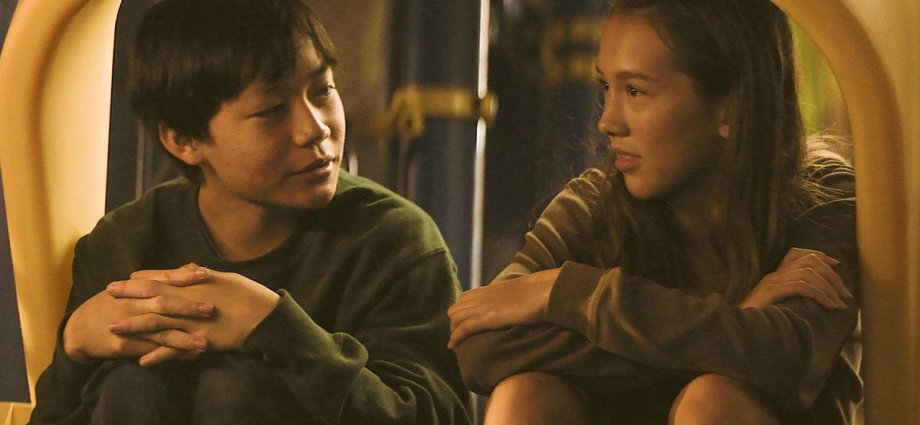Dìdi was made for people who shiver with panic at the sound of AOL Instant Messenger’s creaking door alert. Each time it played in Sean Wang’s 2008-set coming-of-ager, it felt like a claw hook had launched out of the screen and dragged me back in front of my father’s PC, seconds after realising my crush had just logged on and the indie band lyric I’d picked for my away message really wasn’t as seductive and mysterious as I’d hoped it to be.
Wang’s semi-autobiographical feature-length debut takes place at a time in digital history that’s now old enough to feel like an artefact, and includes a major plot development revealed through the removal of one character from another character’s top eight friends on Myspace. What a hellish time to be young and confused.
Chris Wang (Izaac Wang), called Wang Wang by his friends, has the average problems of a 13-year-old kid. He tries and fails to impress girls. He wages all-out warfare with his older sister, Vivian (Shirley Chen). And he’s stuck in that resentful stage of development in which paternal disrespect has become a reflex. His father is back in Taiwan, earning money for the family. His mother, Chungsing (Twin Peaks’s Joan Chen), distracts herself with elusive dreams of becoming a painter. Chris calls her art “stupid” and tries to sever ties with his heritage. When he watches her cut up a Big Mac with a knife and fork, he groans and dismisses her as “so Asian”.
These are battles that, in all their infinite variations, feel timeless. But Dìdi, like Bo Burnham’s Eighth Grade and its deeply anxious, Instagram-fixated tween girl protagonist before it, targets the online space with painful accuracy. A monologue’s worth of romantic distress is condensed down to a shot of a cursor nervously hovering between the “:)” and “:P” emojis. Arielle Zakowski’s editing is seamless. We leap from the screen, and its barrage of pop-up windows, to Chris’s features. The actor’s face works like a glass-walled aquarium, all his thoughts visible, swimming around in nervous, little circles.
But it’s an important document of its time, too, because it doesn’t hesitate to throw itself headfirst into the dorky, impenetrable, frequently uncomfortable vocabulary of the teenage boy. Chris is a good person, at heart, but he says indefensible things and rightly gets in trouble for it – once because he misinterprets the social rule in which a girl can call her friend a “dumb b****”, but someone else can’t then call that friend a “dumb b****”, too.

Wang’s attention to detail here captures the casual cruelty of a generation brought up on South Park. His film is subtle, too, in how a passing racist comment from Chris’s crush (Mahaela Park) – that he’s “pretty cute for an Asian” – is repressed and allowed to silently stew, right until it erupts in his mother’s face. She’s already dealing with her own intergenerational conflict. Her mother (the director’s own grandmother, Chang Li Hua) does nothing but chastise her. The relationship is roughly sketched out, but the luminosity of Chen’s performance makes it immediately legible.
In the end, Dìdi favours sentimentality, but it doesn’t strictly feel as if it were shot through the distanced, nostalgic lens of a filmmaker in reflection. There are funny cutaways to skateboard videos, shot by Chris for a bunch of older kids he’s trying to impress, and a strange and vibrant dramatisation of a story about a dead squirrel (voiced, of course, by the master of skateboard videos, Spike Jonze). It’s all the better for feeling so immediate. Dìdi is a memory with barely a scratch on it.
Dir: Sean Wang. Starring: Izaac Wang, Shirley Chen, Chang Li Hua, Joan Chen, Raul Dial, Aaron Chang, Mahaela Park. 15, 91 mins.
‘Dìdi’ is in cinemas from 2 August











